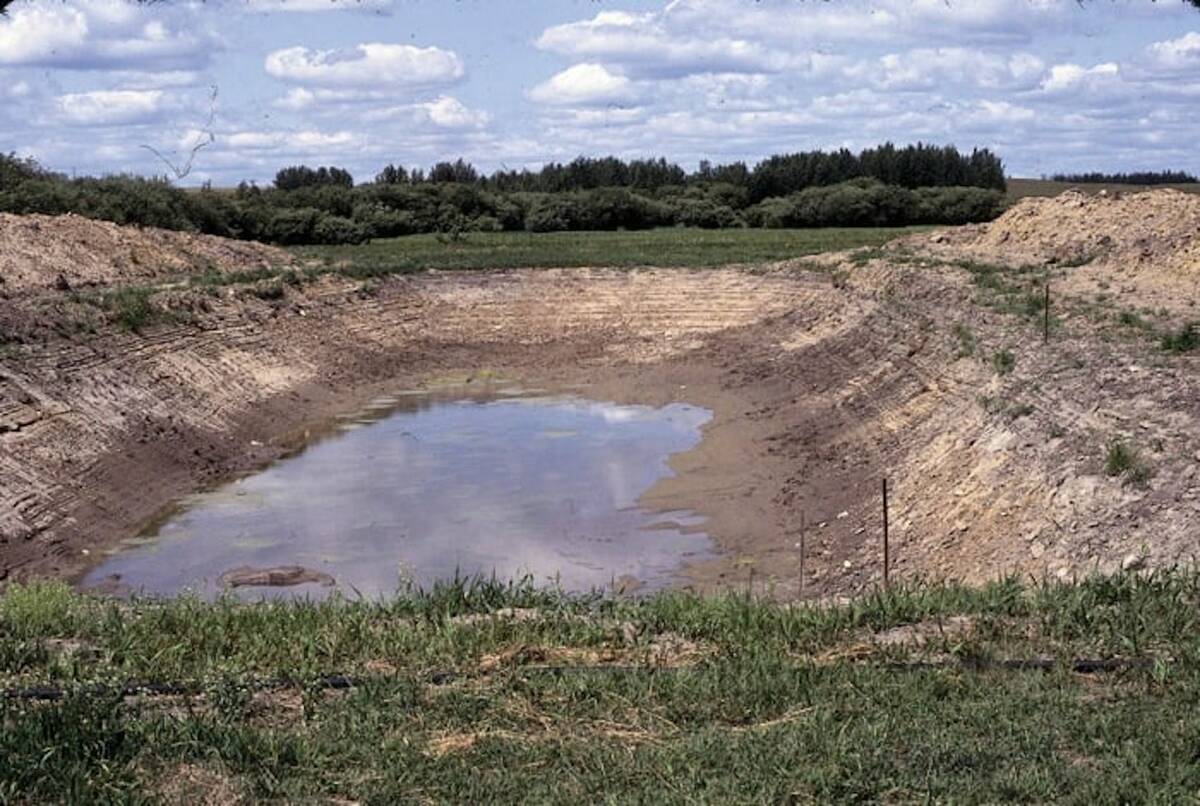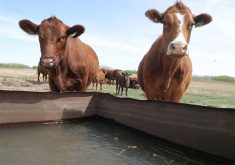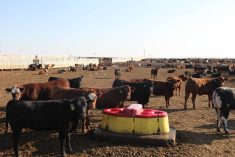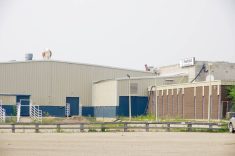CALGARY – Handling suspected animal abuse in a friendly manner rather than threatening to press charges helped resolve six cases of animal neglect reported to the Alberta Foundation for Animal Care.
The foundation was set up in 1993 to deal with questions about farm animal welfare. It has active members from 15 commodity groups.
In a case of suspected abuse, producers of the species in question visit the farm. Farmers in difficulty are usually more receptive to dealing with another producer rather than a constable from Society for the Prevention of Cruelty to Animals, said Susan Kitchen. She manages the producer-sponsored foundation.
Read Also

Dry summer conditions can lead to poor water quality for livestock
Drought conditions in the Prairies has led to an decrease in water quality, and producers are being advised to closely monitor water quality for their animals.
New code for livestock transportation
The foundation has been rewriting a code of practice for the humane transportation of livestock and poultry.
Animal rights groups are using national advertisements to tell the public that animals are being mistreated when travelling. Groups like the Canadians for the Ethical Treatment of Animals, Canadian Federation of Humane Societies and Humane Society of Canada and Animal Alliance are involved.
“It’s a new bandwagon for them to target,” said Kitchen.
Agriculture Canada, which is responsible for enforcing transportation regulations, decided to review the regulations. Alberta was asked to study conditions and review the code of practice because of the large volume of animals moved in this province.
Survey results
More than 100 groups have been contacted individually by questionnaire and by interview. A draft report has been written and sent back to those interviewed for review. It will then be turned over to Agriculture Canada.
Kitchen is concerned the federal department will bow to demands made by the animal rights groups. These include air conditioned transport, fewer animals on the truck and shorter travel times. Kitchen said these requests are not always realistic.
“It’s been proven that once the animals are on (the truck), that’s where the stress point is. Once they’re on and comfortably bedded, it’s more stressful to take them off again.”
Other requests, such as improved suspension in the trucks, have already been done and drivers have been trained to handle animals gently.
For example, a special station has been set up at Shelby, Mont., for people moving horses. A sick bay is available for injured and crippled horses coming to Canada. They are unloaded and kept there until they improve or a “mercy truck” fetches them. Special loading and bedding are provided.
“They’re all loaded with dignity,” Kitchen said.
For those with concerns about specific instances of how farm animals are being treated, or who wish to report a case in confidence, call toll-free to 1-800-506-CARE.

















